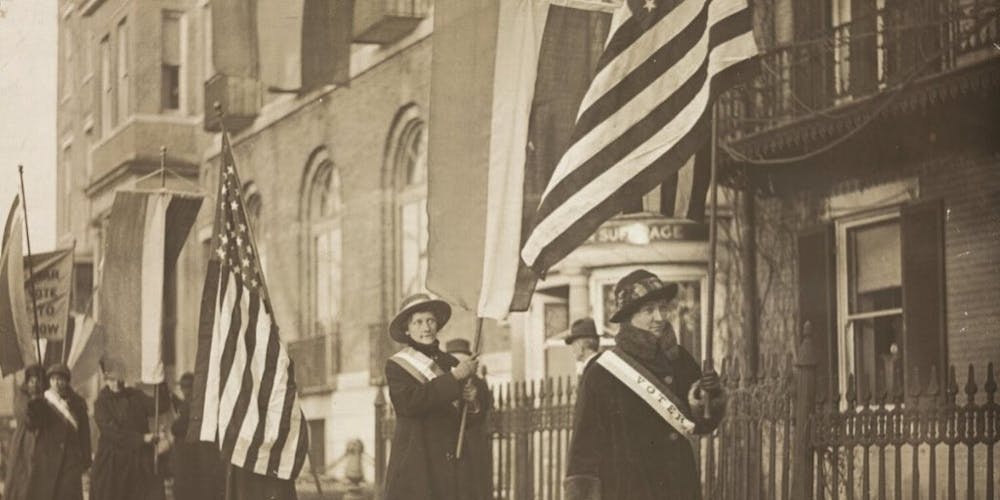100 years ago, in August of 1920, white women gained the right to vote in the United States. Although when the 19th amendment was passed, despite helping white women accomplish this huge milestone, women of other races didn’t earn their right to vote until much later.
Ohio University is recognizing this landmark with its Suffrage Centennial event series, in which members of OU and Athens are offered the opportunity to participate in a number of events honoring women's suffrage. These events vary from virtual banner and sash making sessions to extensive lists recommending NPR pieces, movies and other forms of media discussing women's rights.
However, they’re also using the time to educate about the complications and disconnects within the women’s suffrage movement.
Dr. Catherine Cutcher, assistant director for undergraduate programs at the Center For International Studies, explained how it is important for everyone to recognize the women’s suffrage movement and what women are still fighting for today.
“I think it is important to both commemorate the 100th anniversary of women's suffrage in the United States, and also critique the complicated history of women's voting rights,” Dr. Cutcher said in an email. “The women's suffrage movement was connected to the abolitionist movement against slavery, but it was also plagued by exclusion, racism, classism, and xenophobia.”
Dr. Cutcher explained that Native American women were not granted citizenship or allowed to vote in U.S. elections until the Indian Citizenship Act was passed in 1924. Chinese women were not granted citizenship or allowed to vote until the Magnuson Act of 1943, and black women were finally given the ability to legally vote with the Voting Rights Act of 1965. She feels people must do their part as a whole to recognize that this 100-year anniversary did not mean immediate equality.
To celebrate the centennial of the 19th Amendment, Dr. Cutcher recommends voting in the November election, as she does in every election.
“I think we should learn from our ancestors and enlarge our focus of gender equality to include everyone,” Dr. Cutcher said in an email. “Everyone should vote, and also work for ongoing efforts to register voters and fight voter suppression. We should encourage female candidates to run for office, and support them by donating, working for their campaigns, and voting for them. We should also work to expand the focus of gender equality to recognize the intersectionality of oppression and privilege.”
Jessica Hayes, a local feminist and hospice nurse, wasn’t shocked to learn that people of color were given the right to vote at a different time than white women.
“I didn’t realize that black women had not been given the right to vote at the same time as white women, but I’m also not surprised by that, since black people have always been treated as second class citizens in our country,” Hayes said. “It’s messed up, and sadly par for the course of treatment of people of color in America.”
Kerri Shaw, an associate professor of instruction in social work, organized the women’s march in Athens because she felt like the members of Athens needed to be on the streets and more vocal about not being okay with current administrative flaws. Shaw agrees that the strongest thing people can do to celebrate women’s suffrage is vote and encourage others to vote, along with calling out misogyny in conversations and supporting female candidates not just because they are female, but so that we have proper representation.
“There are women leaders around the world and it just is outrageous that… people here in the United States say we’re not ready and I don’t even understand that argument,” Shaw said. “You look at Congress and it’s majority white males, so I just don’t buy that argument that we’re not ready… I think women leadership might look different and it might change policies in different ways. It’s not like we’re just going to be men in women’s bodies. And that’s, I think, the crux of feminism for me is that we can inform policies differently, and we need to inform policies differently so that everyone is included… When you’re leaving 50% of the population out of decisions that you’re making, it’s bound to create problems in the world.”
Dr. Cutcher said the way to sum up her thoughts about women can be done with one moving Chinese proverb: “Women hold up half the sky.”
In order to get involved with OU’s suffrage centennial, check out the event page here.






